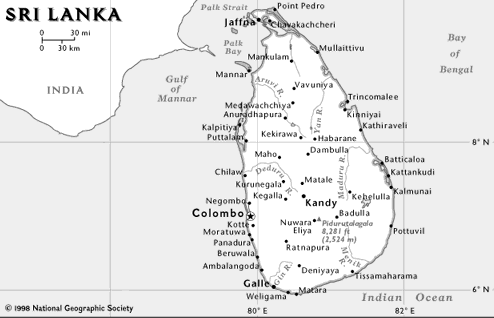
NAMO BUDDHAYA - NAMO DHARMAYA - NAMO SANGHAYA !
ACONTECEU NO SRI LANKA...


Tanto o monge quanto o missionário eram pregadores
famosos, muito bem preparados para uma discussão de alto nível.
Pois sucedeu-se o seguinte: sem querer estender-se em especulações
metafísicas e usando de um simples senso de lógica, o monge
começou por perguntar ao padre se o Deus dele havia dado os mandamentos
a Moisés, para que fossem cumpridos pelos homens, mas para serem
violados por Ele mesmo, Deus.
O missionário rebateu indignado.
"Pois bem", continuou o monge, "disse
que Deus não admite exceção à sua regra, e
que não pode nascer nenhuma alma sem Sua vontade. Deus proíbe
o adultério, entre outras coisas, e, sem dúvida, afirmam
ao mesmo tempo que é Ele quem cria cada recém-nascido, e
o dota de uma alma. Temos que concluir, então, que é obra
de seu Deus os milhões de criaturas nascidas no crime e no adultério?
Que seu Deus proíbe e castiga a violação de suas leis,
e que, apesar disto, cria a cada dia e a cada momento almas para essas
mesmas criaturas? Conforme a lógica mais elementar, esse Deus é
cúmplice no crime, uma vez que sem a Sua intervenção,
aqueles filhos da luxúria não poderiam haver nascido. Onde
está a justiça, castigando não só aos pais
culpados, mas até à inocente criatura, feita (pura) por esse
mesmo Deus, de quem tiram toda a culpa ...?".
O missionário olhou o relógio e viu
que estava ficando tarde... ( isto foi presenciado por Helena P. Blavatsky,
e relatado em seu livro "A Chave da Teosofia").
É tempo de se refletir mais sobre a Lei de Karma e Renascimento. Esta "doutrina" não é passada no Budismo como um dogma, mas como uma afirmação da nossa responsabilidade pelos nossos atos, bem como da existência de uma Misericórdia infinita no plano geral da evolução de todos os seres. Considerar que nosso destino é a vontade de uma divindade, ou outra coisa que não a nossa obra, é fechar para sempre as portas da oportunidade de melhora de caráter ou situação, já que dependerá de um deus fazer-nos felizes ou desgraçados. Karma e Renascimento apontam para a liberdade; qualquer outra coisa é escravidão.
Both the monk and the missionary were famous and learned preachers, well prepared for a high level discussions. Thus happened as it goes: without falling into metaphysical speculations and making use of simple logic arguments, the monk started asking the priest if his God had handed down the Commandments to Moses in order to be carried out by mankind, and to be violated by Himself, God.
The missionary protested exasperated. .
"Well", continued the monk, "God told
us that He doesn't admit exceptions to His rules, that no soul can be born
without His will. God prohibits adultery, amidst other things, and, unmistakingly,
it is tauhgt that it is He who creates each newly-born, and endows it with
a soul. We have to conclude, therefore, that it is His works the millions
of creatures born from crime and adultery !!!!!! Your God denies and punishes
the violation of His laws, and, despite this, creates each day and each
moment new souls for these very same creatures!! According to the most
elementary logic , this God is supporter of the crime, since that without
His intervening these sons of lust couldn't have been born. And where is
justice, punishing not only the parents, but even also the innocent creature,
created (pure) by this very God, from whom you exclude all guilt, all blame?..."
The missionary looked around and felt it was getting
late; he went away, furious, from that memorable occasion... ( this occurred
in the presence of Helena P. Blavatsky, and mentioned in her book "La
Clave de la Teosofia").
It is time that we reflect a lot more about the Law
of Karma and Rebirth. This "doctrine" is not handed down
in Buddhim as a dogma, but as a confirmation of our responsability over
our own acts - in mind, speech and body, in will. It also represents a
Divine and Infinite Compassion in the general plan of man's evolution.
Consider our "destiny" as the will of a deity, or anything else other than
our own deeds, means closing forever the doors of opportunities for improving
situations and personal characters, since otherwise it depends on a god
to make us happy or miserable. Karma and Rebirth points out
to liberation; any other kind of thinking points out to enslavement.